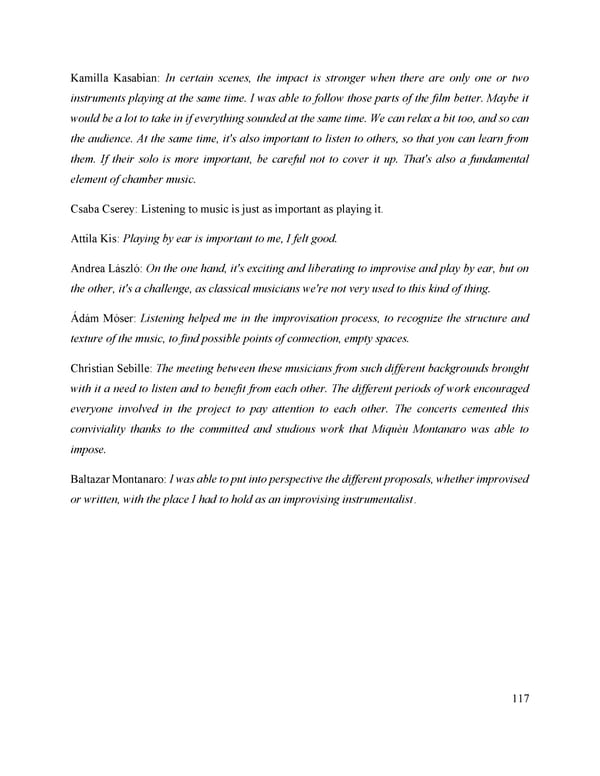Kamilla Kasabian: In certain scenes, the impact is stronger when there are only one or two instruments playing at the same time. I was able to follow those parts of the film better. Maybe it would be a lot to take in if everything sounded at the same time. We can relax a bit too, and so can the audience. At the same time, it's also important to listen to others, so that you can learn from them. If their solo is more important, be careful not to cover it up. That's also a fundamental element of chamber music. Csaba Cserey: Listening to music is just as important as playing it. Attila Kis: Playing by ear is important to me, I felt good. Andrea László: On the one hand, it's exciting and liberating to improvise and play by ear, but on the other, it's a challenge, as classical musicians we're not very used to this kind of thing. Ádám Móser: Listening helped me in the improvisation process, to recognize the structure and texture of the music, to find possible points of connection, empty spaces. Christian Sebille: The meeting between these musicians from such different backgrounds brought with it a need to listen and to benefit from each other. The different periods of work encouraged everyone involved in the project to pay attention to each other. The concerts cemented this conviviality thanks to the committed and studious work that Miquèu Montanaro was able to impose. Baltazar Montanaro: I was able to put into perspective the different proposals, whether improvised or written, with the place I had to hold as an improvising instrumentalist. 117
 Lost Analogue: Exploring Film, Music, and Interdisciplinary Methods in Education Page 117 Page 119
Lost Analogue: Exploring Film, Music, and Interdisciplinary Methods in Education Page 117 Page 119